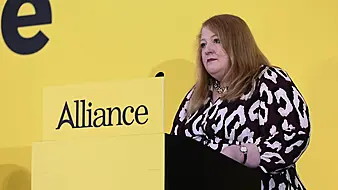The former chief executive of an Irish charity spent an “excessive and inappropriate” amount of money on restaurants, travel and accommodation, an investigation by the Charities Regulator has found.
In a damning 52-page report, the watchdog found that ChildFund Ireland, which has received millions of euro from the State, did not have “adequate” control in managing its spending on travel, expenses, income, credit card expenditure, petty cash, payment of bonuses and overheads.
The report, in which names were omitted, said that such weaknesses created “significant financial and reputational risk” to the charity.
Inspectors also found a lack of sufficient oversight by the charity’s board over its financial matters, and an inappropriate financial governance structure where the chief executive had most of the approval authority and responsibility for internal control.
They also found that an “ineffective” finance and audit sub-committee only met on limited occasions and had an “inappropriately defined” scope of work.
The report said there was “inadequate oversight” by the board and sub-committee of credit card and travel expenditure, procurement and purchase approvals, retirement expenditure, bonuses and recruitment practices.
The international charity, which was founded in 1991, supports the education of children in developing countries such as Ethiopia.
The investigation into the charity came after a number of concerns were raised with the regulator, including one in December 2018.
The concerns raised were in relation to the conduct of a former chief executive of ChildFund, credit card expenditure, lack of control by the trustees of ChildFund, and the breakdown in the relationship between ChildFund and its most significant contributor, Irish Aid.
An investigation was carried out which looked at the appropriate use of charitable assets and the procedures for the recording and authorisation of payments.
It found that the finance director was allowed to make decisions that were not in line with policies and procedures of the charity after she employed seven people contrary to its recruitment policies.
The finance director gave jobs to six people she knew; however, the roles were not advertised and there were no interview processes.
It was claimed that the staff were brought in as emergency recruitment to deal with the extra work around Christmas; however the inspectors said that two of the six staff were still on the payroll in March 2020.
Zambia trip
It also emerged that the chief executive, the finance director and her daughter went on a trip to Zambia at a cost of more than €6,300.
The finance director’s daughter is not a member of staff, despite travelling at the expense of the charity.
The former chief executive told inspectors that the director’s daughter was appointed junior ambassador to take books to children on the trip to Zambia, despite there being no formal recruitment or appointment procedure for the role.
The former chief executive resigned in December 2017, and it emerged that a series of large expenditures were incurred for their retirement lunch and dinner.
The organisation had a deficit of €12,436 when it spent a total of €2,774 on these events, including a €600 farewell gift.
Inspectors from the Charities Regulator found that a large portion of spending went on food and meals in restaurants.
From January 2017 to July 2018 the finance director’s credit card expenditure on food was €3,812.19.
This included meals, some of which the former chief executive attended after he retired.
Of the 84 incidents of expenditure on food by the finance director using the company credit card, none was supported by an expenses claim form, only one was supported by a detailed receipt, and 12 were supported with a Visa receipt only.
The remaining 71 expenditures had no supporting documents, the regulator found.
Credit card statements
A review of credit card statements and receipts found that only 154 out of 417 expenses claims included back-up documents, and there was no approval of expenses by the board.
The regulator said it could not conclude whether the expenses were for charitable purposes.
The regulator also noted that the position of the chief executive was not filled until August 2018 and that the organisation was managed by the finance director, despite board members admitting that she was not qualified.

Previous reports into the charity found that there were issues around its structure and wage costs.
The latest report found that the “ineffective board” has not acted in a timely manner on the recommendations set out in the three reports.
ChildFund Ireland has been contacted for comment.







